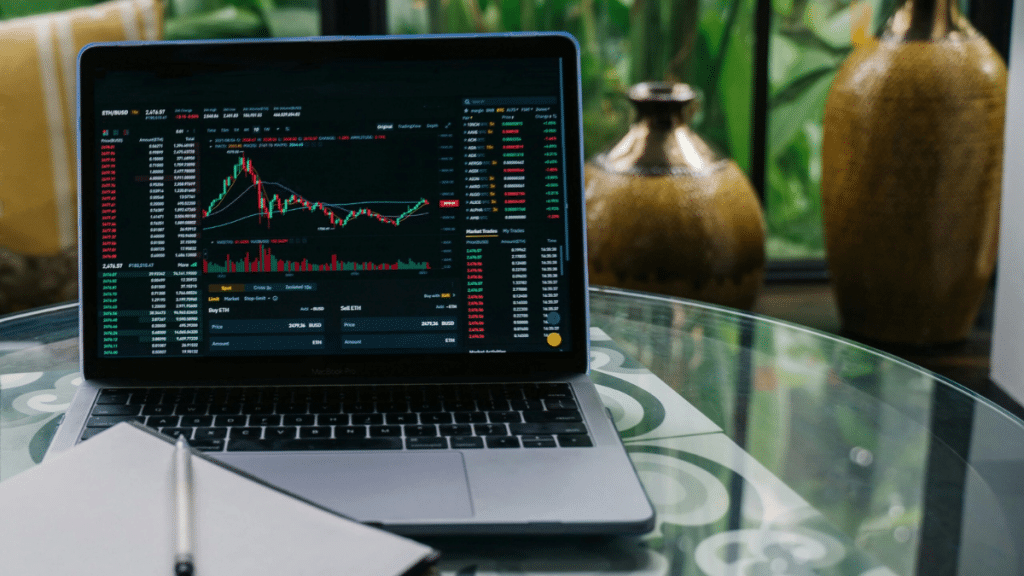Trading currencies online is more accessible today than ever. With just a device and internet connection, individuals can trade forex from nearly anywhere in the world. While this convenience has opened the market to millions, it also raises valid concerns about safety. Understanding the factors that affect security — from broker reliability to account protection — helps new and experienced users manage risk effectively when opening and using a forex account.
This article breaks down what makes online forex trading safe, what risks exist, and how traders can reduce exposure to common problems.
The Role of Regulation
Regulation plays a central role in the safety of online forex trading. A regulated broker must follow guidelines that protect customer funds, maintain operational transparency, and comply with anti-fraud measures. These requirements include:
- Segregated accounts: Client funds must be held separately from company operational accounts.
- Capital requirements: Brokers must maintain minimum financial reserves.
- Audit procedures: Regular reporting to regulatory bodies reduces the risk of misuse.
Traders who want to trade forex online should verify that their broker operates under a recognized financial authority. Licensing details are usually displayed on the broker’s website and should match government registry records.
Account Security Measures
A secure forex account should include both technical protections and user-side safeguards. When evaluating safety, consider the following:
- Two-factor authentication (2FA): This adds a layer of login protection by requiring a second form of verification.
- SSL encryption: All personal data and trading activity should be encrypted during transmission.
- Withdrawal controls: Platforms should only process withdrawals to verified accounts matching the registered user.
- Activity logs: Full visibility of login history and account actions allows users to detect unauthorized access.
These protections work best when users maintain strong passwords and avoid accessing accounts from unsecured public networks.
Platform Stability and Trade Execution
A stable and responsive trading platform is essential for safe and accurate transactions. When a trader decides to trade forex, delayed or failed execution due to platform issues can result in losses. Safe platforms provide:
- Reliable uptime during trading hours.
- Real-time price feeds.
- Instant order confirmation and error alerts.
- Secure order processing infrastructure.
Before committing funds, traders should test the platform using a demo forex account to evaluate performance under live market conditions.
Risk of Market Volatility
The forex market operates 24 hours a day and responds to geopolitical events, economic data, and institutional behavior. While price movement creates potential for gain, it also exposes traders to loss. Even with a safe platform, market risk remains constant.
To manage this, traders should:
- Use stop-loss orders to limit exposure.
- Avoid over-leveraging their forex account.
- Set position sizes based on account balance and volatility.
- Monitor economic calendars for high-impact announcements.
No system can eliminate market risk, but disciplined use of tools can reduce its impact.
Scams and Unregulated Brokers
One of the most significant threats in online forex trading comes from unregulated or fraudulent brokers. These entities may offer unrealistic profit guarantees, manipulated pricing, or obstruct fund withdrawals. Red flags include:
- Promises of guaranteed returns.
- High-pressure sales tactics.
- Lack of regulatory disclosure.
- Poor or missing customer support channels.
To safely trade forex, only open a forex account with firms that provide verifiable regulation, full legal documentation, and transparent communication.
Summary Table: Online Forex Trading Safety
| Area of Safety | What to Look For |
| Regulation | Government-licensed broker with verified ID |
| Platform security | SSL encryption, 2FA, and withdrawal restrictions |
| Account control | Clear logs, user dashboard, access limits |
| Market risk management | Stop-loss tools, margin control, position sizing |
| Broker trustworthiness | Transparent fees, no profit guarantees |
Final Thoughts
Trading forex online is safe when the trader uses a regulated broker, follows security best practices, and manages risk properly. A well-protected forex account includes technical safeguards, real-time trading features, and clear operational policies. Still, safety depends on the trader’s decisions, including how they control exposure and verify platform legitimacy.
While no system eliminates all risk, it’s possible to trade forex with confidence by focusing on verified structures and rational strategies. Responsible users maintain control over their capital and remain alert to common threats, making online forex trading a structured and secure activity.
